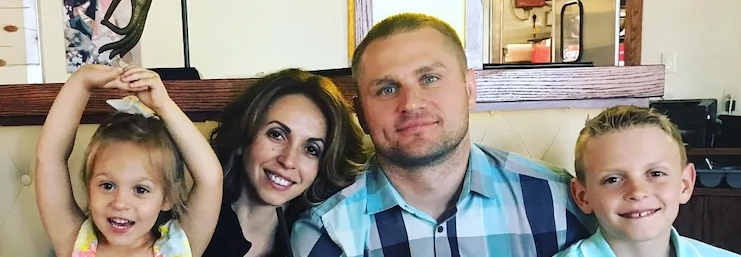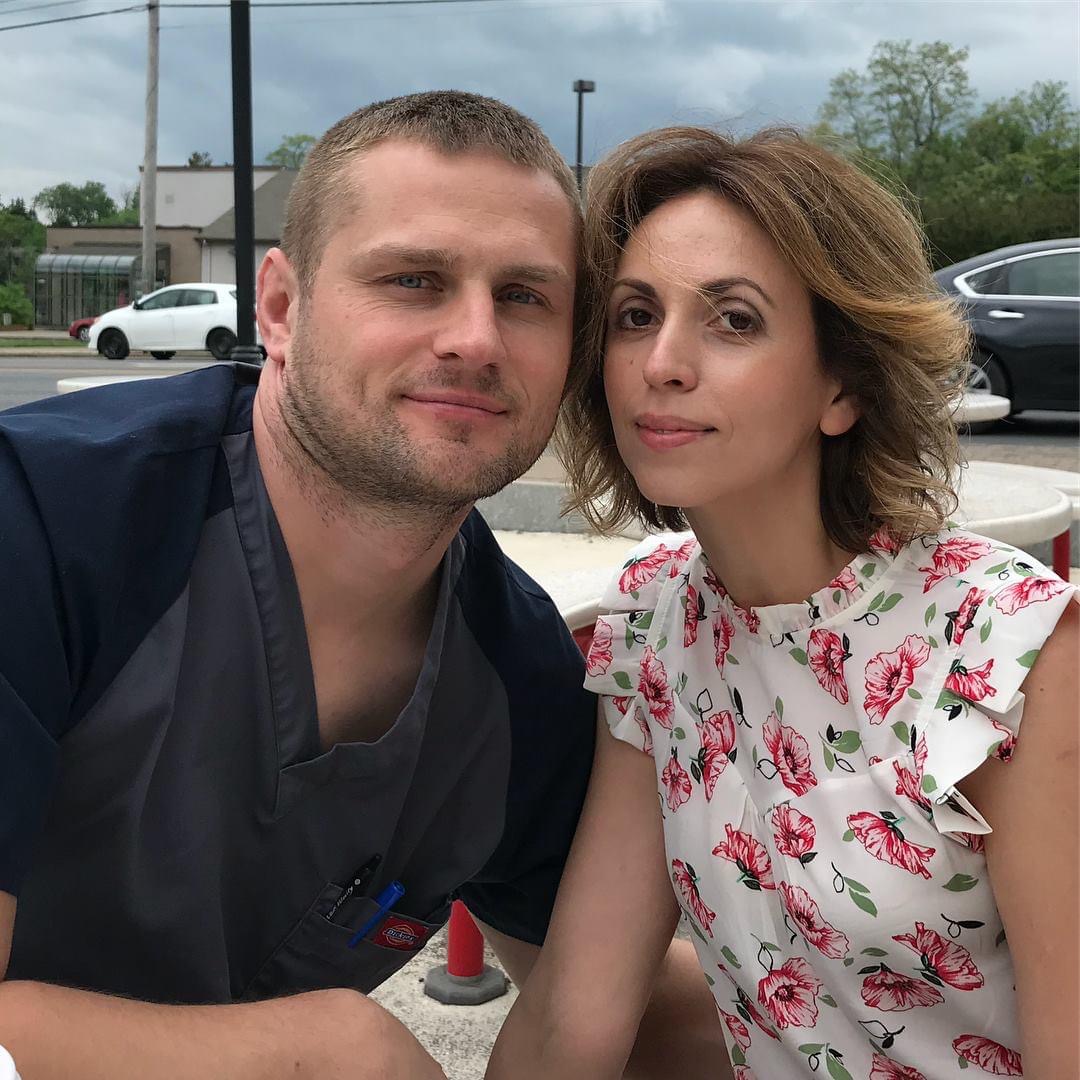
In a heartbreaking turn of events, Luba and Oleg Klishch were separated just weeks after getting married. After seven long years of separation, they were finally reunited in 2013.
For Luba and Oleg Klishch, coming to America didn’t just mean better job opportunities or even freedom from religious persecution. No, to the Klishch’s, America was the physical embodiment of family. After seven long years of separation, Luba and Oleg were finally reunited under one roof in the October of 2013.
Luba was born and raised in communist Ukraine. She first experienced America through letters that her uncle would send her, in which he would describe sprawling, colorful grocery stores stacked to the ceiling with food, and a staggering plenty of clothes and toys.

“It sounded like a fairy tale,” Luba said during an interview with Cho Law. “It was unimaginable to me during that period.”
Coming from a small village of only a few hundred people in Ukraine, she had grown accustomed to the dearth of resources and entertainment. She notes that her family certainly couldn’t afford many toys or clothes, not to mention the fact that her local grocery store was often only stocked with bread and milk. Growing up under the Russian occupation of Ukraine, she remembers the scarcity of her childhood in association with religious persecution and a failing socialist system. America wasn’t just a commercial wonderland for Luba, but a hopeful light at the end of the tunnel.
“It’s a land of opportunity, a land of freedom,” she said. “You get to set your own course; whatever you like to do and whatever you imagine to do, you can do it here.”
After moving to the United States at the age of twelve in 1993, Luba eventually fulfilled her childhood dream of graduating from high school and college in America.
While Luba was attending school in the United States, Oleg was working as an elementary school teacher in Ukraine. The two met while Luba was visiting some family members after having finished college, and got married a year later. They planned to live together in the United States.
Their marriage was complicated only a few weeks after their wedding, when Oleg found out that he wasn’t eligible to enter the United States. To worsen their predicament, Luba and Oleg’s son was born with a persistent heart condition that required frequent attention from a qualified cardiologist. Luba would have remained in Ukraine with her husband, but was forced to move anyway, for the sake of her son’s health. Trying to figure out a medical solution in Ukraine was impossible, as the nearest hospital providing adequate service was 500 miles away in Kiev, the nation’s capital.
Luba continued to travel back and forth between Ukraine and the United States, raising her son while visiting her husband as much as possible. She would alternate countries every three months, which was the maximum amount of time that she could afford without renouncing her American citizenship. Luba’s frequent travels put a hold on her post-college career plans, and kept her from finding consistent jobs. Despite the difficulties of finding employers that would hire from only months at a time, she jumped from company to company to support her husband financially. In Ukraine, Oleg was also having trouble finding financial stability; he had left his teaching career to work in construction, despite mentioning that he enjoyed working at school. Ironically, the construction job paid more than his teaching job, albeit only $300 a month.

“It was barely enough to cover the costs of food,” Oleg says.
Over the course of seven years, the Klishch’s continued to file for Oleg’s visa. Luba notes that her family’s Christian background proved to be a driving force of faith while being constantly rejected.
“We hoped that there was one good person that would see [Oleg’s] case differently,” she said during her interviews. “We loved each other… and we knew that there were good people in the government.”
Finally, in the July of 2013, after having consulted countless immigration lawyers and firms, Oleg was finally approved to come to the United States.
Oleg’s dream since his early days in Ukraine was to work in the medical field. Drawing on the lack of sufficient service around him, he was compelled to take any steps toward realizing the dream to help his community. In addition to the fact that medical training and jobs weren’t commonplace in Ukraine, Oleg’s family had been unable to pay for medical school. Now, he has started from the bottom in the United States, working as an entry level phlebotomist. Determined to reach heights that had once seemed impossible, Oleg is working to complete prerequisites that will make him eligible to apply to nursing school this coming year. Having had similar concerns about her community, Luba also works in a healthcare field, running her own business as a healthcare insurance broker.
Many people think of the American Dream with aspirations of a glowing career. However, despite their success in their careers, that wasn’t what made the Klishch’s Americans. It was that the United States became their home, literally and figuratively; a place where they earned their happiness by coming together once again.
